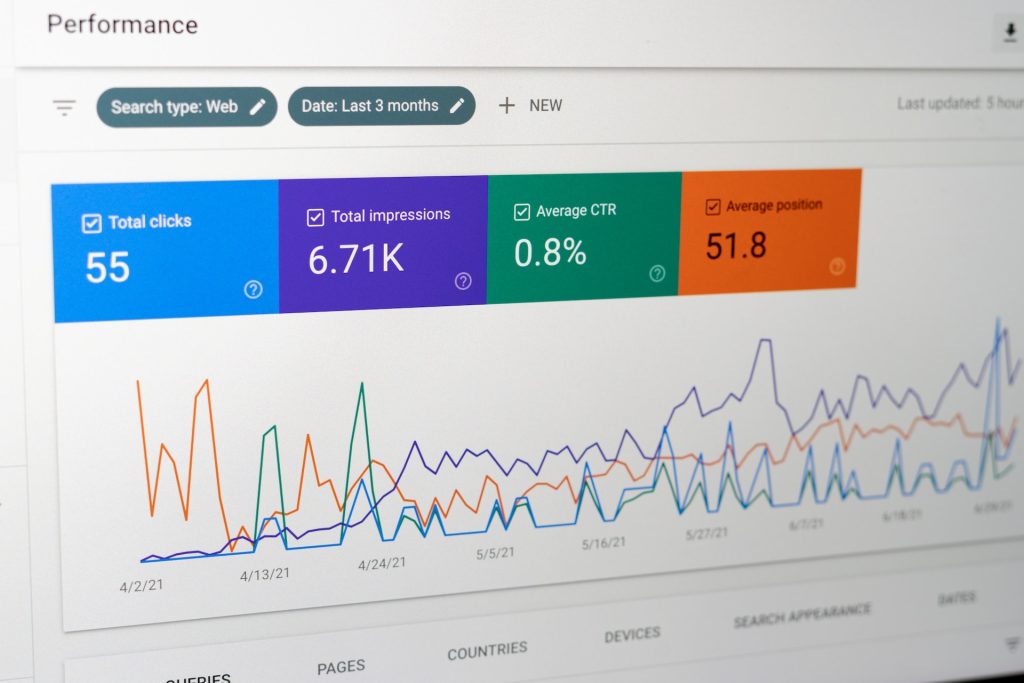
Image by Unsplash
3 years of pandemic, the emergence of AI… The world is changing rapidly, and the labor market is no exception. This article is going to talk about one of that, the future of gig economy.
The entertainment sector undoubtedly comes to mind when you hear the phrase “gig.” The phrase was used by musicians and other artists to refer to the fleeting employment chances that, when combined, made up the majority of their careers.
Nowadays, you don’t always need to be a performing artist to get work. Examples of gig economy include a freelance writer who values freedom or a driver who offers to take passengers for a fee, a temporary contract job is more prevalent than ever.
By providing individuals with a simple means to connect with job prospects, the internet’s availability has accelerated the future of gig economy. Employment sites like UpWork and Fiverr make it simple for temporary employees and those wishing to hire them to connect with one another. There are even some gig workers unions that are fully functional that represent gig workers of specific communities or fields.
But, you are not required to look for freelance work via these sites. You could market your services on your own via your professional network, depending on your field, specialization, and kind of job.
One in six people with typical occupations would prefer to work for themselves as freelancers or independent contractors. You could be one of them. But if you’re thinking of doing gigs this post has all the assistance for gig workers.
What is a Gig Worker? Examples of Gig Economy

Image by Unsplash
Each person who works in the gig economy is referred to as a “gig worker.” Some examples of gig economy include those who work on several projects for various clients full-time. Others work a day job and engage in gig labour as a part-time side business to either further their careers or supplement their income.
Since these positions are often transient, gig workers must depend on self-promotion. For a charge, websites like Uber and Upwork will take on that job. But, you may need to undertake that job via networking or social media, depending on what you’re offering.
You may eventually support yourself on word-of-mouth after developing trust with a few customers, showcasing your work output, and creating a portfolio. You can easily find examples of gig economy and assistance for gig workers on web.
How Are Gig Workers Paid?

Image by Unsplash
The gig economy jobs do not earn a wage like those in regular full-time positions. Typically, they agree on a fee for their services and bill their customers after finishing their tasks.
As long as both parties consider the conditions to be reasonable, there are no restrictions on how much a contractor may charge for their services. Typical methods for freelancers to charge their customers are as follows:
- Hourly Rates. Some employees keep time logs and only bill for the time it takes to finish a job. This is a helpful billing approach to employ if you don’t know how long a job will take in order to prevent undercharging for your services. A freelance graphic designer may earn less than minimum wage or maybe nothing at all if they undercharge for a product that takes 30 hours to produce.
- Fixed Costs. Others won’t care how long it takes them to finish; they’ll simply charge for the items or services they supply. For more seasoned freelancers who are better at calculating turnaround times, this is fantastic. A writer will make more money than if they charge by the hour if they can generate three $150 pieces in a workday. They may decide to increase their hourly cost, but this may deter customers who worry about being overpaid.
- In order to appropriately cover the range of their services, contractors might vary their billing. A web designer could bill a predetermined fee for a website and an hourly cost for any further updates. If a carpenter is remodelling a house, they could bill for the hourly labour in addition to the cost of the materials required to construct the result.
Up to 16% of Americans have worked as independent contractors at some point in their life, although relatively few of them have done so as their main source of income. However, those who worked gigs full-time often made less money than their coworkers in regular positions.
But not usually. A small percentage of freelancers earned respectable wages, sometimes exceeding $100,000 annually. Despite the lesser salary, gig workers (82%) said they prefer working for a small business rather than a bigger one.
Whether you want to make more money for a big life event, like buying a house, having a baby, hosting a wedding, or sending a kid to college, side hustles are a great way to make some cash. The future of gig economy shows us choices to earn extra income.
Gig Worker Types

Image by Unsplash
The definition of the gig economy includes a wide variety of gig workers from almost every sector.
Some well-liked gig economy jobs are very recent, while others have existed since the beginning of trade. The many categories of gig workers are listed below:
- Freelancers: Provide services for several customers as a freelancer
- Consultants: Provide clients’ advice as consultants.
- Independent Contractors: Contrary to appearances, independent contractors are not regular employees. Gig workers can also get a cash advance to kickstart their journey. as independent contractors.
- Temps: Temporary independent contractors
- Seasonal Employees: Act as independent contractors to provide temporary services
How to Succeed as a Gig Worker?

Image by Unsplash
WFH(working from home) is becoming more common due to the pandemic. So the future of gig economy has limitless potential.
We’ve selected a few of the motivating factors that are essential for succeeding as a gig worker:
1. Initiation:
We discovered that individuals that are highly driven toward initiation don’t hang around waiting for someone else to take the lead; instead, they leap right in and start working. The possibilities excite them. These are qualities you’ll need if you want to work as a gig worker since you could just have a few seconds to claim a job opportunity when it appears on your app before someone else does.
2. Time Management:
When it comes to unpredictable freelance workers, the saying “time is money” certainly applies. After all, you don’t get paid if you don’t work! The gigsters who can effectively manage their time to maximize productivity are the most successful. When you waste your precious working hours, you are really squandering money away. And that’s obviously bad. You need to create proper sleeping and working schedules while also making time for family, hobbies and other household chores.
Billionaire’s 7 Morning Routines for Maximum Productivity
3. Responsibility:
Being self-responsible is one of the major assistance for gig workers. High solo responsibility-motivated individuals prefer to work alone on projects with clear objectives rather than delegating authority to a team. You must be able to operate alone and assume full responsibility for your contracts if you want to succeed as a solopreneur.
4. Goal Orientation:
How do you inspire others and yourself? Goal orientation (motivated by working toward a purpose and objectives) and issue orientation were the two motivations in this area that we found in our study (interested in predicting, preventing or solving problems). Yet, you’ll often need to have a mix of both in the freelance economy.
Difference and/or evolution: How much diversity and change do you enjoy? Having high degrees of evolution and/or difference will work well for you if you want to get gig economy jobs.
Evolution implies that you value progressive change and take pleasure in a dynamic world. An extreme difference indicates that you like quick change and desire to launch brand-new initiatives from the beginning. Both are favourable to the gig economy’s dynamic environment. Yet, if you’re driven by monotony, the gig economy’s lack of consistency could make you anxious.
5. A Little Assertiveness:
When you are assertive, you value norms and standards to a certain extent and are not afraid to let other people know what is expected of them. Because you won’t be really forceful and won’t be managing any staff, you can get by without being too pushy. You will need to be your own advocate as a gig worker since no one else will stand up for you.
Thus you will need to be at least somewhat forceful. Moreover, we discovered a favourable correlation between assertiveness and profitability.
6. Money:
Successful businesspeople place a strong emphasis on money, but this does not imply that you are simply in it for the money. Instead, it indicates that you are driven to focus on the company’s financial and commercial aspects.
Your attention will be on margins and profit and loss. This is crucial since finding enough jobs to support one’s self as a gig worker is one of the major obstacles. You don’t want to work your maximum number of hours and then discover that your income is still insufficient to cover your expenses.
7. Try Alarmy
Alarmy is an amazing alarm app specially designed for those who have trouble waking up in the morning. It has a lot of smart clock options as well as other features like motivational quotes and calming sounds to calm your mind. Managing times is the first step to keep up with the future of gig economy. Start to motivate and stay on top with Alarmy!
8. Poor Consistency:
Those who are motivated by consistency are hesitant to make decisions and constantly double-check their work. This is excellent for roles requiring a high degree of consistency in safety requirements, such as customer service, quality control, or any other.
Yet, due to the quick speed and transient nature of the gig economy, you don’t have time for constant monitoring; instead, you must complete the task at hand and move on to the next. Being in the middle or lower range of consistency would undoubtedly make it simpler for you to succeed as a freelance worker.
9. The Potential Of Learning:
Skills are important in the gig economy jobs. You may earn more money the more abilities you can market. One gig worker often switches between two distinct applications in a single day, such as ridesharing and food delivery. You must be open to learning new skills in order to diversify your sources of income if you want to succeed in this new economy.
10. People skills:
In the end, working as a gig worker will put you in close touch with clients, whether it be when you converse with them while you drive them somewhere or when you serve them food at the door. Being a successful solopreneur will need you to develop your emotional intelligence, listening abilities, and empathy. Making many business friendly people can be an assistance for gig workers.



